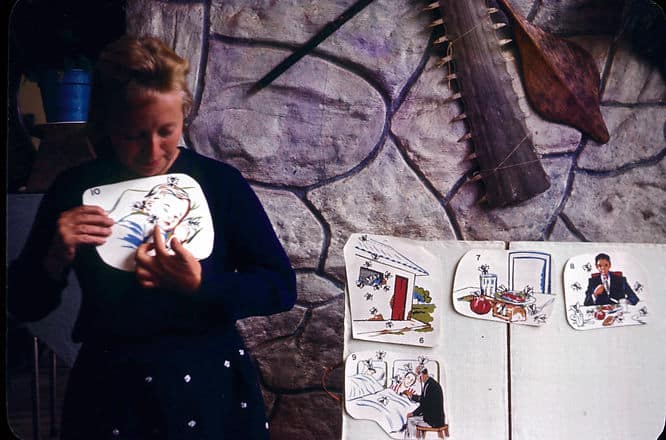Presented by Museum of the Peace Corps Experience and American University Museum

The needs and priorities of every society change over time. Peace Corps assignments have evolved to meet shifting requirements of countries that invite the agency to work with them. During the early years—an era that saw the emergence of newly independent states in Africa and elsewhere—volunteers often were asked to help with nation-building efforts. Some taught alongside local educators to develop curricula in secondary schools and universities, some assisted public health officials to improve basic services, and others aided government staff in institutional development.
Recent Peace Corps assignments favor projects related to the environment, youth, agriculture, community economic development, as well as traditional fields of health and education. Some involve information technology to extend the reach of services. In planning each project, volunteers and their host counterparts have had to consider questions of equity and sustainability.
Beyond their primary assignments, volunteers today engage in grassroots projects—digital and traditional literacy, small libraries, community gardens, youth camps, arts education, or after-school sports. Most volunteers now live with host families. These changes enhance their integration into the community and their understanding of local needs and cultural concerns.
If what Peace Corps Volunteers do has changed over the years, the basis for their work has not: Collaborating and living with local communities remain key to ensuring that their joint efforts are sustainable over the long term and after volunteers return home.
Image: Peace Corps volunteer Jennie Bishop (Colombia, 1963–65) uses a flannel board to teach her class about the importance of avoiding insects.
Museum of the Peace Corps Experience
PO Box 2427
Oregon City, OR 97045
USA
The Committee for a Museum of the Peace Corps Experience is a 501(c)(3) private nonprofit organization. Tax ID: EIN # 93-1289853
The Museum is not affiliated with the U.S. Peace Corps and not acting on behalf of the U.S. Peace Corps.
Museum of the Peace Corps Experience © 2024. All Rights Reserved.